第89章
Tom was touched to the quick, but there was an angry reaction immediately.
His face flushed as he said.
`But will my aunts let them be sold, mother? Do they know about it?
They'll never let your linen go, will they? Haven't you sent to them?'
`Yes, I sent Luke directly they'd put the bailies in, and your aunt Pullet's been - and O dear, O dear, she cries so, and says your father's disgraced my family and made it the talk o' the country: and she'll buy the spotted cloths for herself because she's never has so many as she wanted o'that pattern, and they shan't go to strangers, but she's got more checks a'ready nor she can do with.' (Here Mrs Tulliver began to lay back the table cloths in the chest, folding and stroking them automatically.) `And your uncle Glegg's been too, and he says things must be bought in for us to lie down on, but he must talk to your aunt; and they're all coming to consult....But I know they'll none of 'em take my chany' she added, turning towards the cups and saucers - `for they all found fault with 'em when I bought 'em, 'cause o' the small gold sprig all over 'em, between the flowers.But there's none of 'em got better chany, not even your aunt Pullet herself, - and I bought it wi' my own money as I'd saved ever since I was turned fifteen, and the silver tea-pot, too - your father never paid for 'em.And to think as he should ha' married me and brought me to this.'
Mrs Tulliver burst out crying afresh, and she sobbed with her handkerchief at her eyes a few moments, but then removing it, she said in a deprecating way, still half sobbing as if she were called upon to speak before she could command her voice, `And I did say to him times and times, `Whativer you do, don't go to law' - and what more could I do? I've had to sit by while my own fortin's been spent, and what should ha' been my children's too.You'll have niver a penny, my boy...but it isn't your poor mother's fault.
She put out one arm towards Tom, looking up at him piteously with her helpless, childish blue eyes.The poor lad went to her and kissed her and she clung to him.For the first time Tom thought of his father with some reproach.His natural inclination to blame, - hitherto kept entirely in abeyance towards his father by the predisposition to think him always right, simply on the ground that he was Tom Tulliver's father - was turned into this new channel by his mother's plaints, and with his indignation against Wakem there began to mingle some indignation of another sort.Perhaps his father might have helped bringing them all down in the world, and making people talk of them with contempt: but no one should talk long of Tom Tulliver with contempt.The natural strength and firmness of his nature was beginning to assert itself, urged by the double stimulus of resentment against his aunts, and the sense that he must behave like a man and take care of his mother.
`Don't fret, mother,' he said, tenderly.`I shall soon be able to get money: I'll get a situation of some sort.'
`Bless you, my boy!' said Mrs Tulliver, a little soothed.Then, looking round sadly, `But I shouldn't ha' minded so much if we could ha' kept the things wi' my name on 'em.'
Maggie had witnessed this scene with gathering anger.The implied reproaches against her father - her father who was lying there in a sort of living death, neutralised all her pity for griefs about table cloths and china, and her anger on her father's account was heightened by some egoistic resentment at Tom's silent concurrence with her mother in shutting her out from the common calamity.She had become almost indifferent to her mother's habitual depreciation of her, but she was keenly alive to any sanction of it, however passive, that she might suspect in Tom.Poor Maggie was by no means made up of unalloyed devotedness, but put forth large claims for herself where she loved strongly.She burst out, at last, in an agitated, almost violent tone, `Mother, how can you talk so? As if you cared only for things with your name on, and not for what has my father's name too.And to care about anything but dear father himself! - when he's lying there and may never speak to us again.Tom, you ought to say so too - you ought not to let any one find fault with my father.'
Maggie, almost chocked with mingled grief and anger, left the room, and took her old place on her father's bed.Her heart went out to him with a stronger movement than ever at the thought that people would blame him.
Maggie hated blame: she had been blamed all her life, and nothing had come of it but evil tempers.Her father had always defended and excused her, and her loving remembrance of his tenderness was a force within her that would enable her to do or bear anything for his sake.
Tom was a little shocked at Maggie's outburst - telling him as well as his mother what it was right to do! She ought to have learned better than have those hectoring, assuming manners by this time.But he presently went into his father's room and the sight there touched him in a way that effaced the slighter impressions of the previous hour.When Maggie saw how he was moved, she went to him and put her arm round his neck as he sat by the bed, and the two children forgot everything else in the sense that they had one father and one sorrow.